Who We Are
Our Goal
In conflicts and crises across the world, armed actors have perpetrated gender-based crimes, but are hardly ever held accountable for them. For this reason, the Observatory on Gender Persecution collects and analyzes data on gender persecution—a charge used to hold gender-based crimes accountable. By raising awareness on these crimes, we hope to help build survivor justice and sustainable peace.
What is the Observatory on Gender Persecution?
The Observatory is a web-based research hub providing real-time information about gender-based crimes that may amount to gender persecution—the charge used to hold such crimes accountable in conflict or other crises. Consolidating scattered data from across the globe, the Observatory works to raise awareness and generate policy recommendations to address gender persecution crimes. The Observatory is the first in the world to provide an online resource center dedicated to documenting crimes committed against women, men and explicitly including LGBTQI+ persons based on gender, including when these crimes happen at the intersections of other forms of persecution, including ethnic and racial crimes and crimes committed against children. The Observatory provides a virtual academic platform for scholars, academics, policy makers, practitioners, advocates and students to analyze these crimes and develop strategies that promote justice.
Why an Observatory on Gender Persecution?
It is not enough to hold perpetrators accountable for crimes that take place during atrocities. Sustainable peace requires an understanding of how perpetrators justify such acts—if justice is to root out discrimination and break cycles of violence and tell the complete story of what happens to victims and survivors in conflict.
Gender-based harms committed against women, girls, and LGBTQI+ persons are not new. They are as old as human history. In crises and conflicts across the globe, from Afghanistan, Colombia, Iraq, Mali, Syria, Ukraine, to Germany, armed actors have committed gender persecution crimes, in an effort to reinforce discrimination and oppression. Yet, war-time abuses against people who are marginalized within their societies are rarely documented. As a result, such violations are excluded from traditional and restorative justice processes. In effect, they are left out of history.
Why Call for Gender Persecution Accountability?
There are myriad forms of accountability, ranging from restorative justice models to international tribunals to domestic court proceedings, but a first step to any justice process is agreement on what constitutes a crime or wrongdoing. Holistic redress for harms caused during atrocities not only calls for accountability, but also understanding why these crimes took place. The recognition of gender persecution as a crime against humanity in the Rome Statute, which governs the International Criminal Court, provides a pathway forward for the international community to meaningfully challenge this type of harm. Regrettably, this critical progress on the definition of gender has never been fully realized under international criminal law, failing to move from paper to practice.
As with all forms of persecution, accountability for gender persecution requires recognition of its underlying discrimination. Such recognition would demonstrate to the world that targeting women, girls, LGBTQI+ persons because of their gender is a crime against humanity. It would promote a survivor-centered approach, recognizing a broader range of survivors and their rights to participate in peace processes and transitional justice mechanisms. Finally, it would also help build sustainable peace, disrupting the normalization of gender discrimination and violence institutionalized in existing law and practice.
Excerpts from Dusting Off the Law Books: Recognizing Gender Persecution in Conflicts and Atrocities, 20 Nw. J. Hum. Rts. 1 (2021), pp. 29-36
Our Experts
The Gender Persecution Expert Group is comprised of high-level experts recognized in the fields of international human rights law, international criminal law and gender justice.
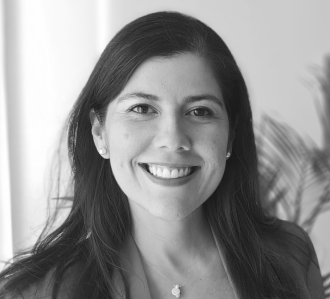
Ana Elena Abello Jiménez
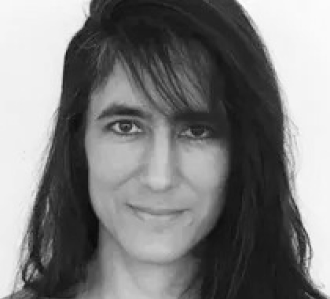
Kirby Anwar
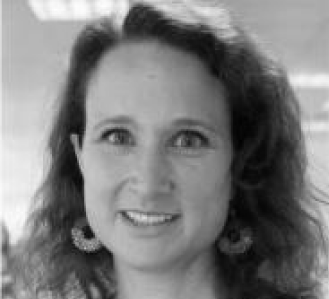
Véronique Aubert
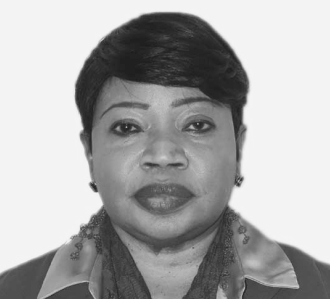
Fatou Bensouda
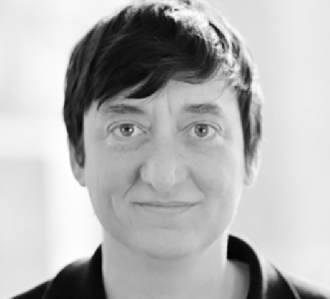
Lisa Davis
Gender Persecution Observatory Chair
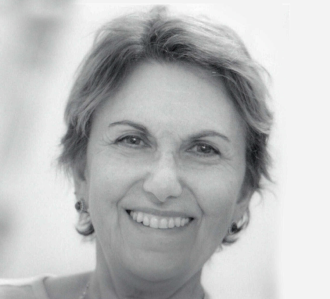
Yasmine Ergas
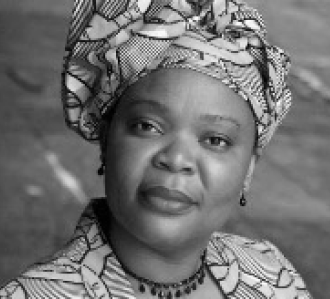
Leymah Gbowee

Rosemary Grey

Kevin Jon Heller
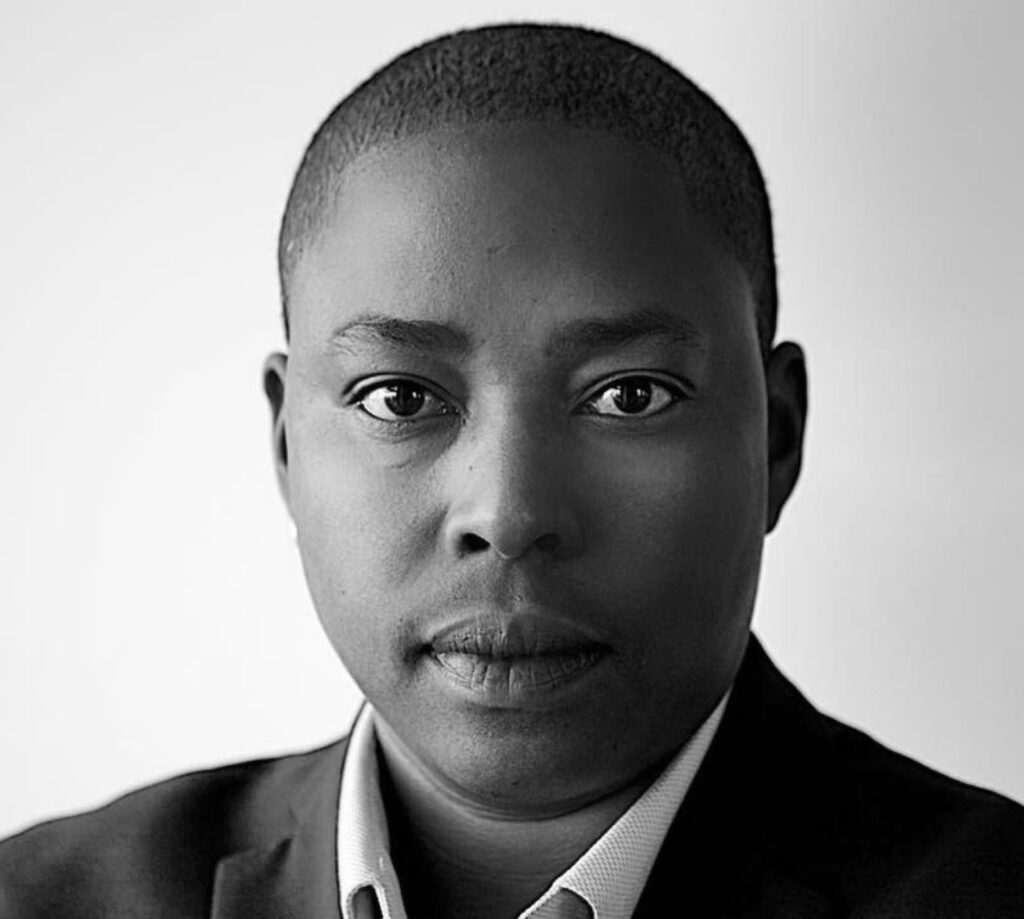
Wendy Isaack
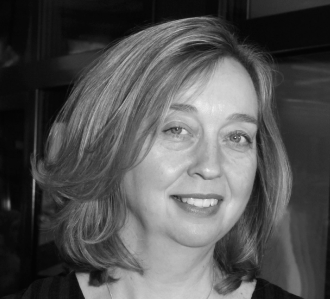
Michelle Jarvis
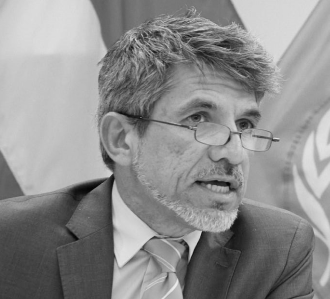
Victor Madrigal Borloz
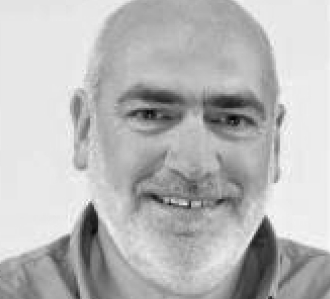
Tim McCormack
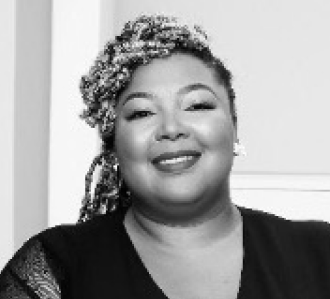
Tlaleng Mofokeng
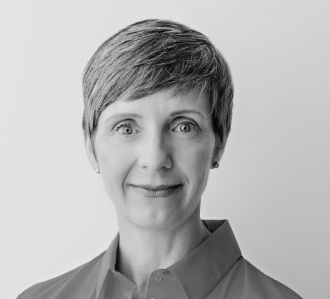
Valerie Oosterveld
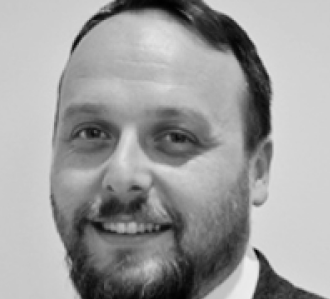
Joseph Powderly
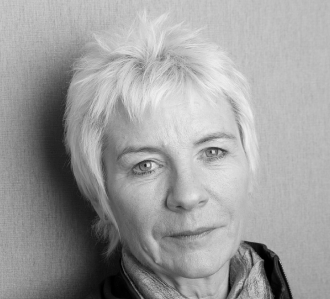
Madeleine Rees
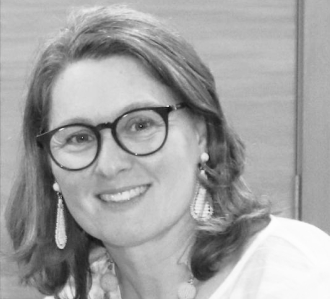
Indira Rosenthal
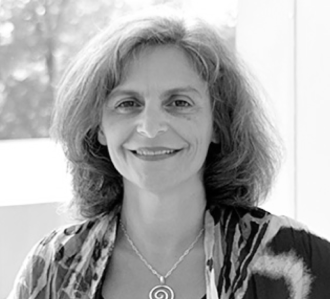
Susana SáCouto
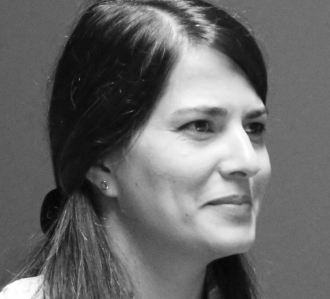
Huma Saeed

Maria Sjödin
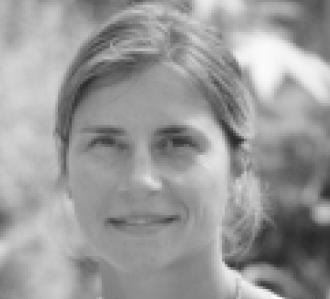
Milena Sterio
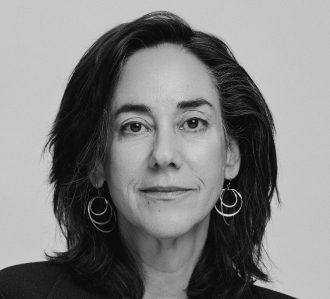
Yifat Susskind

Rene Urueña

Ana Elena Abello Jiménez
Ana Elena Abello Jiménez is a Colombian Lawyer, currently appointed as Assistant Magistrate at the Special Jurisdiction for Peace, who has been working at the Chamber for Recognition of Truth, Responsibility and Determination of Facts and Conducts for 6 years, particularly, on Case 02, in which members of FARC-EP are investigated for the crime of persecution based on gender and ethnicity, among others. Ana Elena has also worked as Legal Advisor of the Deputy General Prosecutor, as Prosecutor of the National Anticorruption Direction, as Legal Officer at the Constitutional Court of Colombia, as lawyer at a Criminal Law firm representing victims and defense. She also did an internship at the Legal Advisory Section of the Office of the Prosecutor at the International Criminal Court. She is passionate about international criminal law and human rights. Her studies are Specialization on Criminal Law and Criminology, Specialization on Tort Law and Damages, both at Externado University; LLM in International Law of Human Rights and Criminal Justice at Utrecht University; and MA in Peacebuilding at Los Andes University.

Kirby Anwar
Kirby Anwar is a Visiting Associate Professor of law and Co-Director of the Human Rights and Gender Justice Clinic at CUNY School of Law. She is international human rights lawyer who focuses on accountability for grave human rights violations and crimes under international law, and protection of marginalized communities. She has extensive experience engaging with international and regional human rights mechanisms and provides legal and advocacy support to feminist civil society organizations in complex and conflict-affected contexts who are seeking transformational change, including justice for crimes against humanity. Kirby's scholarship focuses on women and LGBTQI+ human rights defenders' protection needs, gender violence in situations of conflict and disaster, and gender justice under international criminal and human rights law. She has also provided technical expertise to Colombia’s Special Jurisdiction for Peace regarding crimes committed on the basis of gender and ethnicity, and co-authored reports on gender persecution in Afghanistan for advocates and judicial actors.

Véronique Aubert
Ms Véronique Aubert is a senior human rights expert with over 20 years of experience in fact-finding missions investigating gross violations against children in conflict settings, and promoting governments and armed actors compliance with international law standards. She is the Lead on Children and Armed Conflict at Save the Children UK where she provides policy analysis and child rights expertise, and lead talks with senior government officials and donors. She recently co-authored with Oxford University the report, Advancing Justice for Children (March 2021), that explores the barriers—and potential solutions—regarding accountability for crimes and violations against children in conflict. She also serves as Co-Chair of the Global Coalition to Protect Education from Attack (GCPEA),and is actively involved in advocacy around the development and implementation of the Safe Schools Declaration, while also involved in the publication of the Education under Attack flagship report.
Ms Aubert regularly serves as a child rights expert for Justice Rapid Response to investigate international crimes against children and as a member of Technical Advisory Panel forthe Global Fund for Survivors of Conflict-Related Sexual Violence. She was awarded an OBE in 2021 as a reward for her contribution to protecting children in armed conflict.
Prior to joining Save the Children UK in 2012,Ms Aubertworked at Amnesty International’s International Secretariat for 11 years, first as a Researcher on the Democratic Republic of the Congo (2000-2007) and then,Deputy Director of the Africa Programme (2007-2011). During that time, she conducted and coordinated fact-finding investigations and supervised publications on a range of issues relating to crimes against or involving children in situations of armed conflict.
She was also appointed Trustee on the Board of Child Soldiers International (2016-2019), a nongovernmental organization that worked to prevent the recruitment, use and exploitation of children by armed forces and groups. She also served as an Expert in the process convened (2013-2016) by the Preventing Sexual Violence Initiative (PSVI) UK Foreign & Commonwealth Office team that developed the International Protocol on the Documentation and Investigation of Sexual Violence in Conflict.
Ms Aubert holds a Master’s in Law and Diplomacy from The Fletcher School of Law and Diplomacy (1998).

Fatou Bensouda
Dr. Fatou Bensouda served as Prosecutor of the International Criminal Court - (The ICC) (2012-2021) having assumed office in 2012. In 2011, she was elected by consensus by the Assembly of States Parties to serve in this capacity. Dr. Bensouda was nominated and supported as the sole African candidate for election to the post by the African Union. She is the first woman to serve as the Prosecutor of the ICC. Her nine year mandate as ICC Prosecutor ended on 15 June 2021.
Under her leadership, Dr. Bensouda has greatly reinforced the capacity of her Office through a number of strategic and managerial initiatives and expanded her Office's activities to cover 14 investigations, and countless active preliminary examinations in conflicts around the world.
Through her work, she has strived to advance accountability for atrocity crimes, highlighting in particular the importance of addressing traditionally underreported crimes such as sexual and gender-based crimes, mass atrocities against and affecting children, as well as the deliberate destruction of cultural heritage within the Rome Statute framework.
Between 1987 and 2000, Dr. Bensouda was successively State, Counsel, Senior State Counsel, Principal State Counsel, Deputy Director of Public Prosecutions, Solicitor General and Legal Secretary of the Republic, and Attorney General and Minister of Justice of The Republic of The Gambia. Her international career as a non-government civil servant formally began at the UN International Criminal Tribunal for Rwanda, where she worked as a Legal Adviser and Trial Attorney before rising to the position of Senior Legal Advisor and Head of the Legal Advisory Unit (2002 to 2004), after which she joined the ICC as the Court's first Deputy Prosecutor. Dr. Bensouda has served as delegate of The Gambia to; inter alia, the meetings of the Preparatory Commission for the ICC.
She is the recipient of numerous awards, including the distinguished /CJ lnternational Jurists Award (2009), presented by the then President of India P. D. Patil; the 2011 World Peace Through Law Award presented by the Whitney Harris World Law Institute, the American Society of International Law's Honorary Membership Award (2014), and the XXXV Peace Prize by the United Nations Association of Spain (2015). Upon conclusion of her mandate in 2021 she was awarded Outstanding Achievement Award by ABILA, and from ASIL's WILIG Prominent Woman in International Law 2022. Dr. Bensouda had the privilege to deliver in 2021 Nelson Mandela Annual Lecture and was also awarded The Bruce J Klastsky Distinguished Lecturer In Human Rights by CWRU School of Law in 2022. She has also received The Magnitsky Human Rights Award 2022 as Outstanding Lawyer.
In addition to receiving several honorary doctorates, Dr. Bensouda has been listed by Time magazine twice as one of the 100 most influential people in the world (2012, 2015); by the New African magazine as one of the "Most Influential Africans;" by Foreign Policy as one of the "Leading Global Thinkers" (2013), by Jeune Afrique as one of 50 African women who, by their actions and initiatives in their respective roles, advance the African continent (2014 &: 2015), and by Forbes magazine as Africa's 50 Most Powerful Women (2020).
In 2018, Dr. Bensouda received the Bled Strategic Forum's Distinguished Partner Award for the continuous commitment and her part, and on the part of the ICC, to international peace and justice. In the same year, she was invited and joined the eminent roster of International _ Gender Champions.
Prior to the end of her mandate, Dr. Bensouda was awarded l'ordre national du Lion du Sénégal by the President of Senegal for her dedicated service in the advancement of international criminal justice, and her native country, The Gambia, announced that she will be awarded the country's highest civilian honour for her principled service as ICC Prosecutor.
Dr. Bensouda (and the Office she led as ICC Prosecutor) have been nominated for the 2021 Nobel Peace Prize in recognition of their accomplishments and work in advancing international criminal justice, without fear or favour.
Dr. Bensouda currently serves as The Gambian High Commissioner to the Court of St James's and Ambassador Extraordinary and Plenipotentiary to the Kingdoms of Denmark, Norway, Sweden, the Republics of Austria, Ireland, Finland and the Vatican City.

Lisa Davis
Gender Persecution Observatory Chair
Gender Persecution Observatory Chair
Lisa Davis is the Senior Associate Dean of Clinical Programs, Professor of Law and Co-Director, Human Rights & Gender Justice Clinic. Professor Davis is the Special Adviser on Gender and other Discriminatory Crimes to the International Criminal Court (ICC), formerly serving as the Special Adviser on Gender Persecution. In this role, Davis drafted the first-ever policy on the crime of gender persecution for the ICC Office of the Prosecutor.
Davis has written and reported extensively on international human rights and gender justice issues, including women’s rights and LGBTQI+ rights in conflict and disaster settings. Lisa has testified before U.S. Congress, U.K. Parliament, the Inter-American Commission on Human Rights and various international human rights bodies. Lisa is also a member of the JRR-UN Women SGBV Justice Experts Roster.
In 2016, Professor Davis was elected by their peers to deliver the civil society statement for the U.N. Security Council’s open debate on the use of sexual violence in conflict situations. In the case of Karen Atala and Daughters v. Chile, Professor Davis co-authored the only amicus curiae brief to argue that sexual orientation and gender identity are protected classes under international law. Among others, the brief was also co-authored by attorneys at the law firm Morrison & Foerster, who focused on the custody issue at hand, arguing that sexual orientation and gender identity should not be factors in custody determinations. In 2012, the Inter-American Court of Human Rights issued a groundbreaking decision, providing for an explicit prohibition of discrimination based on sexual orientation or gender identity.

Yasmine Ergas
Yasmine Ergas is the Director of the Specialization on Gender and Public Policy and Senior Lecturer in the Discipline of International and Public Affairs at the School of International and Public Affairs at Columbia University, where she teaches courses on international human rights and gender. She has served as Director of Columbia's Institute for the Study of Human Rights and is engaged in several Columbia institutes and programs. She is the co-founder and co-chair of the University's Women's, Gender and Sexuality Studies Council as well as of the international network on Women and Gender in Global Affairs. Her recent work focuses on the nexus between contemporary illiberal governments and movements and gender politics, and on the establishment of an early warning system that may alert to risks to gender-related rights and to gender studies. She has worked extensively on the transnational market in reproductive services and its implications for women's rights. Yasmine earned her BA at the University of Sussex; Laurea from the University of Rome; and JD from Columbia Law School. Among her numerous honours and grants, she has been a Member of the School of Socia. Science at the Institute for Advanced Study at Princeton; held fellowships and grants from the American Council of Learned Societies, the Ford Foundation, the Open Society Foundations, the Compton Foundation and was an inaugural fellow of the Vartan Gregorian Research Grants by of the Institute for International Education and the Scholars Rescue Fund. Her recent works include a co-edited volume on Reassembling Motherhood: Procreation and Care in a Globalized World (Columbia University Press, 2017, 2019) and essays on feminism and illiberalism.

Leymah Gbowee
Leymah Gbowee, 2011 Nobel Peace Prize Laureate, is the founding Executive Director of the Institute for Gender, Law, and Transformative Peace. She is a peace activist, trained social worker, and women’s rights advocate. Ms. Gbowee’s leadership of the Women of Liberia Mass Action for Peace – which brought together Christian and Muslim women in a nonviolent movement that played a pivotal role in ending Liberia’s civil war in 2003 – is chronicled in her memoir, Mighty Be Our Powers, and in the documentary Pray the Devil Back to Hell. Ms. Gbowee holds an M.A. in Conflict Transformation from Eastern Mennonite University (Harrisonburg, VA), and has received a number of honorary degrees from universities around the world. She is the founder and current President of the Gbowee Peace Foundation Africa, the founding head of the Liberia Reconciliation Initiative, and the cofounder and former Executive Director of Women Peace and Security Network Africa (WIPSEN-A). She previously served as Executive Director of the Women, Peace, and Security Program at Columbia University. She is also a founding member and former Liberian Coordinator of Women in Peacebuilding Network/West Africa Network for Peacebuilding (WIPNET/WANEP). Ms. Gbowee has won numerous awards and accolades for her peace and justice work. In 2016, Ms. Gbowee was awarded the Lifetime Africa Achievement Prize (LAAP) for Peace in Africa by the Millennium Excellence Foundation and in 2017, Ms. Gbowee was selected by the United Nations Secretary General to serve as a Member of United Nations Secretary-General’s High Level Advisory Board on Mediation. She has been named one of the 100 Most Influential African Women by Avance Media, one of the World’s 100 Most Influential People in Gender Policy, by Apolitical, and one of the World’s 50 Greatest Leaders, Fortune Magazine.

Rosemary Grey
Dr Rosemary Grey is a Senior Lecturer at Sydney Law School, in the University of Sydney. Her expertise lies in international criminal law, especially sexual, reproductive, and gender-based crimes. She has written extensively about gender-based persecution, including in her book "Prosecuting Sexual and Gender-Based Crimes in the International Criminal Court" (Cambridge University Press 2019) as well in the Journal of International Criminal Justice. She has also presented at the Assembly of States Parties to the ICC, delivered trainings on reproductive crimes to the ICC Office of the Prosecutor, and briefed the ICC Appeals Chamber as an amicus curiae on the crime of forced pregnancy. At the University of Sydney, she teaches in the areas of international criminal law, public international law, international human rights law, and international humanitarian law.

Kevin Jon Heller
Kevin Jon Heller is Professor of International Law and Security at the University of Copenhagen’s Centre for Military Studies. He is an Academic Member of Doughty Street Chambers in London and is a Member of the Advisory Board the Bar Human Rights Committee of England and Wales.
Prof. Heller’s books include The Nuremberg Military Tribunals and the Origins of International Criminal Law (OUP, 2011) and four co-edited volumes: The Handbook of Comparative Criminal Law (Stanford, 2010), The Hidden Histories of War Crimes Trials (OUP, 2013), the Oxford Handbook of International Criminal Law (OUP, 2018), and Contingency in International Law: On the Possibility of Different Legal Histories (OUP, 2021). He is currently co-writing a book with Samuel Moyn at Yale provisionally entitled The Vietnam War and International Law. He also serves as the Editor-in-Chief of the international-law blog Opinio Juris, where he blogged for more than 15 years.
Prof. Heller has been involved in the practice of international law throughout his career, most notably acting as one of Radovan Karadzic's formally-appointed legal associates at the ICTY; serving as the plaintiffs’ sole expert witness in Salim v Mitchell, a successful Alien Tort Statute case against the psychologists who designed and administered the CIA’s torture program; functioning as UNITAD’s Special Expert for International Criminal and Humanitarian Law, where he designed training programmes for the Iraqi judges, prosecutors, and investigators involved in Da’esh trials; and acting as legal advisor to and expert witness for Ramzi bin al-Shibh, one of the defendants in the 9/11 trial at Guantanamo Bay.

Wendy Isaack
Wendy Isaack, feminist lawyer and senior expert in gender justice and international law with more than 20 years professional experience in policy and advocacy interventions in Southern and West Africa, the African human rights system and the United Nations. Wendy has expertise in international human rights law, transitional justice and the rule of law and leadership in development of multi-pronged advocacy strategies in domestic, regional and international fora.
Wendy has served in several capacities in various entities including most recently at Purposeful supporting legal advocacy in Palestine, Gender at Work providing technical support to partners in several countries including Rwanda and Tunisia. As researcher at Human Rights Watch (NYC), documenting human rights violations based on sexual orientation and gender identity in several African states; Adjunct Professor at the Human Rights and Gender Justice Clinic, City University of New York (CUNY), international consultant for UN Women, Palestine Office in Jerusalem, Human Rights Specialist at UN Women HQ and Programme Officer in the Office of the Special Representative of the United Nations Secretary-General on Sexual Violence in Conflict. A lawyer by training, she has worked for public interest litigation organisations in South Africa, the Legal Resources Centre, Centre for Applied Legal Studies, coordinator of the Legal Advice Office of the Lesbian and Gay Equality Project and established the Legal Advocacy Programme at People Opposing Women Abuse (POWA).
An Admitted Attorney of the High Court of South Africa, Wendy Isaack holds two masters’ degrees, Public Administration (MPA) from Harvard University Kennedy School of Government and in International Law, focus on Transitional Justice and the Rule of Law (LLM) from the University of Ulster, Northern Ireland.

Michelle Jarvis
Ms. Jarvis has worked in the international criminal justice field for 24 years and is presently the Deputy Head of the International, Impartial and Independent Mechanism (Syria) (IIIM), having taken up the post in December 2017. Prior to that she was the Deputy to the Prosecutor at the International Criminal Tribunal for the former Yugoslavia (ICTY) and the Mechanism for International Criminal Tribunals (MICT), where she had oversight of legal issues across the Office of the Prosecutor. She acted as counsel in a series of cases before the ICTY and the International Criminal Tribunal for Rwanda setting significant international criminal law precedents. Ms. Jarvis has worked extensively to bring visibility to the experiences of marginalized groups during accountability processes and to strengthen legal responses, including initiating the IIIM’s proactive thematic strategies on a victim/survivor-centred approach, gender, children/youth and broader justice objectives to promote inclusive justice for Syria. She has co-authored two books and numerous articles on the subject of gender and armed conflict. Ms. Jarvis has contributed to capacity building efforts to address mass atrocity in (post) conflict zones around the world, including Bosnia and Herzegovina, Croatia, Serbia, Kenya, Rwanda, Uganda, South Sudan, Colombia, Cambodia and Syria. She is also an Advisory Board member of the Center for Climate Crime Analysis and a member of the high-level Advisory Group for the Anchoring Accountability for Mass Atrocities project by the Oxford Program on International Peace and Security. Prior to her work in international criminal law, Ms. Jarvis was a litigator in Australia, where her roles included improving women’s access to justice. Ms. Jarvis holds a Master’s degree in law from the University of Toronto as well as degrees in law and economics from the University of Adelaide.

Victor Madrigal Borloz
Victor Madrigal-Borloz, Costa Rican lawyer, is the Eleanor Roosevelt Senior Visiting Researcher in Human Rights at the Human Rights Progam of Harvard Law School since 1 July 2019. In early 2024 he was renewed in the position until December 2025. He is also a Practitioner in Residence and Lecturer in Law at Harvard.
Madrigal-Borloz started his career at the Inter-American Court of Human Rights in San José, Costa Rica. He then worked at the Danish Institute for Human Rights, and later returned to the OAS and served as Head of Litigation and Head of the Registry at the Inter-American Commission on Human Rights, where he was also the first staff member in a unit on the human rights of LGBTI persons.
Starting in 2013, Victor served a four-year term as a member of the United Nations (UN) Subcommittee on the Prevention of Torture, a body of independent experts established pursuant to the Optional Protocol of the Convention against Torture (OPCAT) to monitor, assist and advise States in the adoption of policies and practices to prevent torture. Madrigal-Borloz was named the Secretary-General of the International Rehabilitation Council for Torture Victims also in 2013, an international non-governmental organization of over 144 centers providing rehabilitation to torture victims in 74 countries around the world. He led the organization to affirm its vision of full enjoyment of the right to rehabilitation for all victims of torture and ill treatment.
From 1 January 2018 to 31 October 2023, he held the mandate of UN Independent Expert on Protection against violence and discrimination based on sexual orientation and gender identity. During his mandate he delivered a research agenda spanning from so-called "conversion therapy" and discriminatory laws" to the impact of colonialism in the formation of social mores surrounding sexual orientation and gender identity.
Madrigal-Borloz is a signatory of the Yogyakarta Principles plus 10. He is also a founding member of the Costa Rican Association of International Law and a board member of the International Justice Resource Centre. He a recipient of Kaleidoscope Trust’s Lifetime Achievement Award and the Human Rights Campaign’s Global Equality Award (2023).
.

Tim McCormack
Prof. Tim McCormack is Professor of International Law at the University of Tasmania. He was the Foundation Australian Red Cross Professor of International Humanitarian Law at the Melbourne Law School (1996-2010) and the Foundation Director of the Asia Pacific Centre for Military Law, a collaborative initiative of the Melbourne Law and the Australian Department of Defence Legal Division (2001-2010). Prof. McCormack was awarded a Fulbright Senior Scholarship to take up the positions of Charles H. Stockton Distinguished Scholar-in-Residence at the US Naval War College in Newport, Rhode Island (2015-16) and the James Barr Ames Visiting Professor at Harvard Law School (2016).
He served as expert Law of War Adviser to the Defence Team for David Hicks for trial by US Military Commission, Guantanamo Bay (2004-07) and as Amicus Curiae on International Law matters for the trial of Slobodan Milošević by the UN International Criminal Tribunal for the former Yugoslavia in The Hague (2002-2006). Prof. McCormack was a member of the Australian Government Delegation at the Diplomatic Conference to negotiate the Rome Statute (1998) and has served as the Special Adviser on War Crimes to the former Prosecutors of the International Criminal Court, Mr Ocampo (2010-2012) and Mrs Fatou Bensouda (2012-2021).
Prof. McCormack is the Editor-in-Chief of Brill Nijhoff’s International Humanitarian Law Series and has published widely in the fields of International Humanitarian Law and the prosecution of war crimes.
His latest books include Civility, Barbarism and the Evolution of International Humanitarian Law: Who Do the Laws of War Protect?,(Cambridge University Press 2024 - co-edited with Matt Killingsworth), Asia Pacific Perspectives on International Humanitarian Law (Cambridge University Press 2019–co-edited with Suzannah Linton and Sandesh Sivakumaran), Australia’s War Crimes Trials 1945-51 (Brill Nijhoff 2016 co-authored with Georgina Fitzpatrick and Narrelle Morris), and Routledge Handbook of the Law of Armed Conflict (Routledge 2016– coedited with Rain Liivoja). He is publishing a 5 volume comprehensive law report series of Australia’s post World War II war crimes trials 1945-51 and Volume 1 is expected to be released before the end of 2024.

Tlaleng Mofokeng
Dr. Tlaleng Mofokeng is the United Nations Special Rapporteur on the right of everyone to the highest attainable standard of physical and mental health. Dr. Tlaleng Mofokeng is a Global health expert with experience in legislative reform, policy, healthcare provision, and health communication. She advocates specifically for sexual and reproductive health rights (including adolescent health, transgender affirming health and abortions). She is the co-chair of the O’Neil Commission on racism, structural discrimination and global health. Dr Tlaleng Mofokeng is an adjunct Professor of Law at Georgetown Law centre and is distinguished lecturer at O'Neil Institute for National & Global health law. Dr. Tlaleng Mofokeng is distinguished lecturer at O'Neil Institute for National & Global health law and Extraordinary lecturer at Stellenbosch University's Africa Centre for HIV/AIDS Management.

Valerie Oosterveld
Valerie Oosterveld is the Western Research Chair in International Criminal Justice and a full Professor at Western University’s Faculty of Law (Canada). Her research and writing focus on gender issues within international criminal justice. She has published widely on the interpretation of sexual and gender-based crimes by international criminal tribunals and gender-sensitive investigation and prosecution. She is the co-editor (with Indira Rosenthal and Susana SáCouto) of the award-winning book, Gender and International Criminal Law (Oxford University Press, 2022). She was awarded the 2022 Royal Society of Canada’s Ursula Franklin Award in Gender Studies. She is a member of the Canadian Partnership for International Justice, which won the 2023 Governor-General’s Innovation Award and the 2022 SSHRC Impact Partnership Award.
Before joining the Faculty of Law in 2005, Prof. Oosterveld served in the Legal Affairs Bureau of Global Affairs Canada. In this role, she provided legal advice on international criminal accountability for genocide, crimes against humanity, and war crimes and served on the Canadian delegation to various ICC-related negotiations. In 1998, she was a member of the Canadian delegation to the Rome Statute of the ICC diplomatic negotiations, and she served on the Canadian delegation to the Review Conference of the Rome Statute of the ICC in Kampala, Uganda in 2010.
She holds JSD and LLM degrees from Columbia University, an LLB from the University of Toronto, and a B.Soc.Sc. from the University of Ottawa.

Joseph Powderly
Dr. Joseph Powderly joined the Grotius Centre for International Legal Studies as an Assistant Professor of Public International Law in March 2011, and was appointed Associate Professor in September 2018. He is Director of the Grotius PhD Track Programme and lectures in international criminal law, international criminal litigation, and public international law at both undergraduate and postgraduate levels. His research focuses in particular on the judicial function in an international criminal law context, but also looks more broadly at issues relevant to international criminal justice, international humanitarian law, international human rights law, and cultural heritage law.
Joe received his PhD in international criminal law from the Irish Centre for Human Rights, NUI, Galway, in 2017. His Ph.D., which was funded by the Irish Research Council for the Humanities and Social Sciences, looked at the international judicial function, and the role of judicial interpretative creativity in the progressive development of international criminal law. In addition, he holds a B.A. (English and Legal Science, NUIG, 2004), an LL.B. (NUIG, 2005), and an LL.M. in International Human Rights Law (NUIG, 2006).
Prior to joining the Grotius Centre he was a Research Fellow in International Criminal and Humanitarian Law at the TMC Asser Institute, The Hague (2010-2011). Between September 2008 and January 2010, he was a Doctoral Fellow/Researcher at the Irish Centre for Human Rights, where he worked, among other projects, on a Irish Government-funded investigation and report into the possible perpetration of crimes against humanity against the Rohingya people of North Rakhine State, Burma/Myanmar. This report was launched by the Irish Department of Foreign Affairs in June 2010.
He has published widely in the area of international criminal law, and international human rights law. He is the author of over 80 case-reports for the Oxford Reports on International Criminal Law. He is currently a member of the Editorial Board of the Leiden Journal of International Law and Criminal Law Forum, as well as an editor of the blog, PhD Studies in Human Rights.

Madeleine Rees
Madeleine Rees OBE, is a British lawyer and Secretary-General of the Women’s International League for Peace and Freedom (WILPF), a role she has held since 2010. For most of her adult life, Rees has worked nationally and internationally to advance human rights, eliminate discrimination, and remove obstacles to justice. In addition to her work specialising in discrimination law with a major firm in the United Kingdom, she has also held various roles with the Office of the High Commissioner for Human Rights (OHCHR) – including as Head of the OHCHR in Bosnia and Herzegovina, where she helped expose human rights abuses and the involvement of UN peacekeepers in sex trafficking As Secretary-General of WILPF, Rees is leading the organisation’s efforts to work through national and international legal frameworks to advance a future of human security and justice for all. Passionate about connecting women across borders to share experiences and organise for action, she is committed to building a true global movement for feminist peace. In 2014, Rees was awarded the OBE for her services to human rights, particularly women’s rights and international peace and security.

Indira Rosenthal
Indira Rosenthal is an independent legal expert. She consults widely on gender, international human rights and international criminal law. Her focus is on legal and justice sector reforms in relation to violence against women and girls, women and children’s access to formal justice and gender-based crimes under international law. Among other things, Indira has served as Gender and Legal Adviser at Amnesty International, Legal Counsel with Human Rights Watch and as a senior Australian government lawyer. She is a PhD candidate at the Faculty of Law, University of Tasmania researching unexamined gender dimensions of international criminal law. Indira has a range of publications in her areas of expertise, including lead editor of the award-winning book, Gender and International Criminal Law (Oxford University Press, 2022). Indira was a member of the Australian delegation to the 1998 UN Diplomatic Conference of Plenipotentiaries on the Establishment of an ICC.

Susana SáCouto
Susana SáCouto directs the War Crimes Research Office of the Washington College of Law, which promotes the development and enforcement of international criminal law and international humanitarian law, and the Summer Law Program in The Hague. She is also Professorial Lecturer-in-Residence at the Washington College of Law, where she teaches courses on international criminal law (ICL) and procedure, including an experiential learning course where students work on projects in partnership with tribunals and other organizations dedicated to accountability for atrocity crimes. SáCouto has advised and provided legal assistance on ICL issues to international, regional and domestic courts. Her background prior to joining WCL included extensive practical experience with organizations working on human rights, gender, refugee and international justice issues at both the domestic and international level, including Women Empowered Against Violence, Inc., the Office of the Prosecutor at the International Criminal Tribunal for the former Yugoslavia, the Center for Human Rights Legal Action in Guatemala, and the Florence Immigrant and Refugee Rights Project. SáCouto has published widely on variety of ICL issues, including a book on Gender and International Criminal Law (Oxford University Press, 2022) co-edited with Valerie Oosterveld and Indira Rosenthal, which was recently awarded the Best Book prize from the Women in International Law Interest Group of the American Society of International Law. She is co-founder of the Latin American Network for Gender-based Strategic Litigation, a former Advisory Council Member of the International Association of Prosecutors’ Prosecuting Conflict-Related Sexual Violence Network, and former co-chair of the American Society for International Law’s Women in International Law Interest Group. She was awarded The Women’s Law Center 22nd Annual Dorothy Beatty Memorial Award for significant contributions to women’s rights and honored as an inaugural member of the Gender Justice Legacy Wall by the Women’s Initiatives for Gender Justice for her contributions to the field of international gender justice.

Huma Saeed
Dr. Huma Saeed works as the Afghanistan Advisor with MADRE, a global women’s rights organization. She is also an affiliated senior researcher at the University of Leuven and an adjunct lecturer at the University of Sant’Anna. With over 20 years of work and research experience in the areas of human rights, women’s rights, and post-conflict justice mechanisms, Dr. Saeed has worked as senior consultant with the UN, the ICC and other international organizations. She has a PhD in criminology (KU Leuven), MA in human rights (LSE) and BA in Political Science (UMBC) with research focus on transitional justice and economic-state crime. She is a published author in international academic journals and books reflecting on her research and experiences on transitional justice, economic-state crime, gender justice, and victims’ empowerment.

Maria Sjödin
Prior to becoming Executive Director, Maria served as Outright’s Deputy Executive Director, leading the work of the development and communications teams. In this position, they oversaw a period of extraordinary growth in visibility, diversification and increase in funding. They also launched groundbreaking initiatives, such as Outright’s COVID-19 Global LGBTIQ Emergency Fund and pioneering engagement with international businesses.
Maria previously served as Executive Director of RFSL, Sweden’s largest LGBTIQ organization. While in this position, Maria established RFSL's international program, played a key role in ensuring that the human rights of LGBTIQ people become ingrained in the Swedish government's agenda for development and foreign affairs, advocated for marriage equality (achieved in 2009) and the abolishment of forced sterilization of trans people as a requirement for legal gender recognition (outlawed in 2013).
Maria has conducted leadership training for hundreds of LGBTIQ activists on topics including strength-based coaching and appreciative inquiry. They regularly provide expert opinions to governments, foundations, U.N. agencies and corporations.
Maria (they/she) is frequently quoted by the media, including by outlets like Time magazine and Thomson Reuters.

Milena Sterio
Professor Sterio earned her law degree, magna cum laude, from Cornell Law School in 2002. At Cornell, she was Order of the Coif, general editor of the Cornell International Law Journal and a member of Phi Beta Kappa. In 2003, she earned a master's degree, cum laude, in Private International Law from the University Paris I-Pantheon-Sorbonne; in 2002, she earned a Maitrise en droit franco-americain cum laude, also from the Sorbonne. Her undergraduate degree, summa cum laude, in Political Science and French Literature is from Rutgers College, New Brunswick, New Jersey. Before joining the Cleveland-Marshall faculty, she was an associate in the New York City firm of Cleary, Gottlieb, Steen & Hamilton and an Adjunct Law Professor at Cornell, where she taught in the International War Crimes Clinic. Her research interests are in the field of international law, international criminal law, international human rights, law of the seas, and in particular maritime piracy, as well as private international law. She has published in the American University Law Review, the Connecticut International Law Journal, the Fordham International Law Journal, the Cardozo Journal of International and Comparative Law, the Denver Journal of International Law and Policy, the Florida Journal of International Law, and the UC Davis of International Law and Policy. In her capacity as expert on maritime piracy law, she has participated in the meetings of the United Nations Contact Group on Piracy off the Coast of Somalia, and has been a member of the Piracy Expert Group, an academic think tank functioning within the auspices of the Public International Law and Policy Group. Professor Sterio is one of six permanent editors of the prestigious IntLawGrrls blog. In the spring 2013, Professor Sterio was a Fulbright Scholar in Baku, Azerbaijan, at Baku State University.

Yifat Susskind
MADRE Executive Director Yifat Susskind partners with women's human rights activists from Latin America, the Middle East, Asia and Africa to create programs in their communities that meet urgent needs and create lasting change. A lifelong promoter of human rights, Yifat leads MADRE's combined strategy of community-based partnerships and international human rights advocacy. Under Yifat’s leadership, MADRE has enabled thousands of local women's rights activists in Syria, Yemen, Iraq,
Colombia, Haiti, Sudan, Nepal, the Philippines, and beyond to survive and recover from war, climate breakdown, and theiraftermath. In partnership with MADRE, women around the world rebuild their lives and communities, making their voices heard in the halls of power -- from village councils to the UN Security Council. Yifat’s debut 2019 TED Talk, “Think Like a Mother,” has reached over 2,000,000 views. Her writing has appeared in The New York Times, The Washington Post, Newsweek, The LosAngeles Times, The Guardian, Harvard International Review, The Chronicle of Philanthropy, N.Y.U. Journal of International Law and Politics, and others. Yifat has been a featured commentator on CNN, NPR, and BBC Radio.

Rene Urueña
René Urueña is a professor of law and WTO Chair at Universidad de Los Andes (Colombia) and a Max Planck Fellow in Law. He works on international law, has been counsel and several times an expert witness before the Inter-American Court of Human Rights, and served as an adviser of the Selection Committee of the Special Jurisdiction for Peace (Colombia). René has been a Fellow at New York University, a docent at the Institute for Global Law and Policy at the University of Harvard, and a visiting professor at the City University of New York, and at the universities of Tel-Aviv, Utah, Lapland, Helsinki, and the University of Applied Arts in Vienna. He received his LL.M. (laudatur); his Doctor of Law (eximia cum laude) from the University of Helsinki, and holds a postgraduate degree in economics from Universidad de los Andes (Colombia)
Working Groups
The Gender Persecution in Afghanistan Accountability Working Group (GPWG) is a dedicated platform towards achieving justice, visibility and accountability for gender-based crimes in Afghanistan. Members serve in their individual capacity and hold expertise on gender justice and the human rights situation in Afghanistan. Learn about a few of the members by clicking the images below.
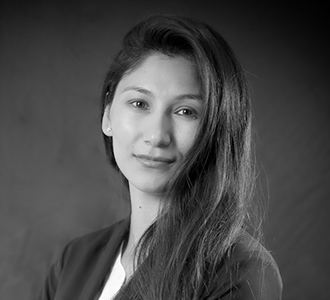
Fereshta Abbazi
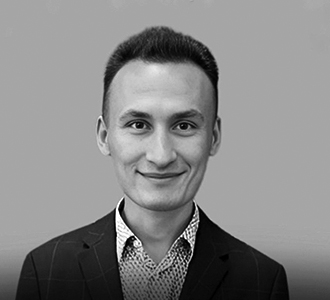
Artemis Akbary
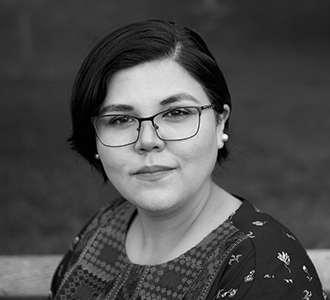
Wazhma Frogh
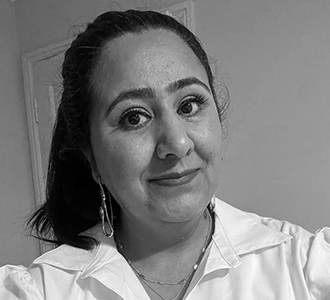
Huria Samira Hamidi
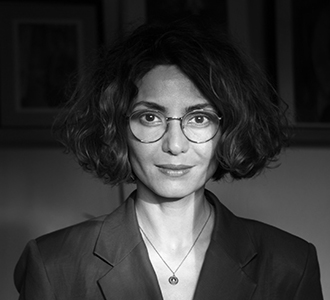
Zahra Mousawy
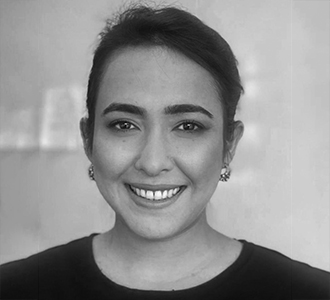
Meetra Qutb
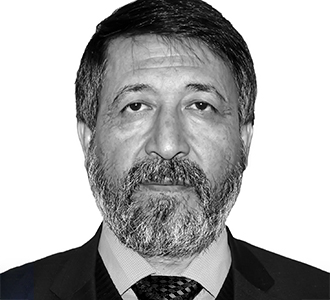
Aziz Rafiee

Fereshta Abbazi
Fereshta Abbasi is the Afghanistan Researcher in the Asia division at Human Rights Watch, focusing on research and documentation of ongoing abuses in Afghanistan. For the past 10 years she has documented human rights abuses in Afghanistan with different organizations, including Human Rights Watch and the All-Survivors Project. She was previously a legal advisor for the International Development Law Organization (IDLO), where she trained and developed employees’ legal skills within the Afghan justice sector. She holds an LLM in International law and Strategic Studies from University of Aberdeen and was a Chevening Scholar in 2019-2020. Fereshta has widely published on human rights issues in the media.

Artemis Akbary
Artemis Akbary is the Executive Director of the Afghanistan LGBTIQ+ Organization (ALO), a leading advocacy organization dedicated to the rights of LGBTIQ+ individuals, particularly in conflict and post-conflict settings with a main focus on Afghanistan. Their work involves engaging with international accountability mechanisms to ensure justice and accountability for LGBTIQ victims and survivors. With extensive experience advocating for LGBTIQ+ refugees at the EU level, Artemis is a recognized voice for marginalized communities. Artemis has addressed global human rights issues at forums such as the UN Human Rights Council, the UN Security Council, and other international platforms. Artemis holds an academic background in International Relations and European Politics, with expertise in Queer, Peace, and Security.

Wazhma Frogh
Wazhma Frogh is a peacebuilding practitioner and human rights lawyer from Afghanistan. Wazhma holds over 25 years of experience in community engagement, human rights, legislative advocacy, and peacebuilding initiatives. Currently, based in Canada, she provides strategic leadership to the Women & Peace Studies Organization (WPSO), which she founded in 2012. WPSO works with over 200 women activists across Afghanistan, supporting the integration of women into national and local peace processes. The organization implements community-based peacebuilding and development projects, in partnership with the Local Women Peacebuilders Network.
Wazhma holds a master’s degree in international human Rights Law and is part of the global justice mechanisms including the Afghanistan case before the International Court of Justice (ICJ), gender persecution and codification of gender apartheid focusing on international human rights accountability.
From 2012, working with Afghanistan’s High Peace Council, she engaged in mediating peace negotiations planning and supported peace processes in the country. In 2017, she was appointed by the Afghan President to the High Peace Council as a Councillor. She played a role in launching the country’s first National Dialogue, which contributed to a ceasefire agreement with the Taliban. She initiated the mothers project in the southern part of the country where mothers prevented their sons from becoming engaged in extremist activities – her work on counter extremism in Afghanistan includes working with local communities, religious elders and mothers – that has been documented in Untapped Resources, a Guidebook published by Georgetown Institute for Women, Peace & Security and published by Oxford University Press. Wazhma holds a master’s degree in international human Rights Law and is part of the global justice mechanisms including the Afghanistan case before the International Court of Justice (ICJ), gender persecution and codification of gender apartheid focusing on international human rights accountability.
From 2012, working with Afghanistan’s High Peace Council, she engaged in mediating peace negotiations planning and supported peace processes in the country. In 2017, she was appointed by the Afghan President to the High Peace Council as a Councillor. She played a role in launching the country’s first National Dialogue, which contributed to a ceasefire agreement with the Taliban. She initiated the mothers project in the southern part of the country where mothers prevented their sons from becoming engaged in extremist activities – her work on counter extremism in Afghanistan includes working with local communities, religious elders and mothers – that has been documented in Untapped Resources, a Guidebook published by Georgetown Institute for Women, Peace & Security and published by Oxford University Press.
In 2017, Wazhma was selected as a Women Peacebuilding Fellow at the Kroc Institute for Peace and Justice at the University of San Diego, where she worked on the localization of the Women, Peace, and Security (WPS) agenda and UN Security Council Resolution 1325. She received training in dialogue and mediation from the Uppsala Department of Peace and Conflict in Sweden, the Folke Bernadotte Academy for Women Peacebuilders and Mediators, and has worked with peacebuilders from the Philippines, Cambodia, and Nepal.
Over the past 25 years, Wazhma has contributed to advancing the role of women in peacebuilding and conflict resolution, collaborating with international organizations and governments to support women’s inclusion in peace processes. She has conducted research and authored extensively on gender, peace, and justice, particularly in conflict-affected contexts. At Harvard University’s Women and Public Policy Program, she focused on women’s engagement in mediation and peace processes.
In Afghanistan, her advocacy work includes legislative reforms in Afghanistan, such as the Elimination of Violence Against Women Law and policies to prevent sexual harassment in security agencies. She has also led campaigns supporting Afghan women’s voices internationally and worked with Human Rights Watch to document local conflicts and traditional dispute resolution mechanisms, contributing to the Traditional Dispute Resolution Mechanisms Law in Afghanistan.
From 2016 to 2018, Wazhma co-chaired the Women, Peace, and Security Working Group, overseeing the implementation of Afghanistan’s National Action Plan on UNSCR 1325. She also participated in Afghanistan-Pakistan track 1 and 2 dialogues as part of the peace process.
Wazhma holds postgraduate degrees in International Law from the University of Warwick (UK) and the American University of Afghanistan.

Huria Samira Hamidi
Huria Samira Hamidi is Regional Campaigner for Amnesty International South Asia Regional Office. Hamidi is holding Master of Advance Studies (MAS) in Mediation in Peace Process from ETH Zurich and Masters (LLM) in International Human Rights Law and Practice from University of York, UK.
As a human rights expert, through her role in Amnesty International she campaigns and lobby to address human rights violations in Afghanistan focusing on situation of women and girls, establishment of accountability efforts in line with international laws and the protection of the dissent. Previously she has worked with EU delegation in Afghanistan, Norwegian Embassy, UN Women, CMI, Folke Bernadette Academy and Sweden Embassy as Freelance Consultant focusing on human rights, women, peace and security and civil society issues. She has also served as Country Director and Chair of the Board for Afghan Women’s Network, Gender Coordinator with UNDP/ Ministry of Interior and Deputy Human Resources Director with the Ministry of Counter Narcotics. Hamidi is the founder and was the chair of Human Rights Defenders Committee and is member of the Gender Persecution in Afghanistan Accountability Working Group (GPWG) and member of Afghan Women Coalition for Justice (AWCJ) and is recipient of several awards for her human rights and women’s rights work.

Zahra Mousawy
Zahra Mousawy, Director and Co-Founder, Afghanistan Women’s Studies Academy (AWSA)
Zahra Mousawy started her career as a journalist with state-run radio and television network in Kabul in 2002 and has more than 13 years of experience in managing current affairs and producing content for newsrooms in Kabul and press outlets. For the past decades, she has been an advocate for independent political, civil and social Women’s rights movements across the country and the region. As a researcher for Persian publications, Zahra writes on social issues, and in particular on gender equality. She is based in Berlin and contributes to several Persian media outlets.

Meetra Qutb
Meetra Qutb works as the Relationship Manager and Communications Specialist at the Centre for Information Resilience’s Afghan Witness project. A project that uses open-source intelligence (OSINT) to collect, preserve and verify information on human rights and security in Afghanistan with the aim of strengthening the Afghan information environment.
Ms. Qutb has formerly worked as a lecturer at the Faculty of Law and Political Science of Kabul University and has also worked in human rights and research organisations in Afghanistan, Germany and the UK. She holds an LLM in international human rights law from Lancaster University in England and also a MA in public economics, law and politics from Leuphana University of Lüneburg in Germany.

Aziz Rafiee
Aziz Rafiee is a distinguished human rights advocate and civil society leader with over three decades of experience in state-building, nation-building, and promoting human rights in Afghanistan. His career has been dedicated to creating a just and open society, where citizens enjoy meaningful socio-political participation, respect for human dignity, and coexist in a trusting environment. Aziz has played a significant role in the development of Afghanistan's civil society, collaborating with diverse stakeholders at local, national, and international levels.
Aziz's involvement in Afghanistan's political and constitutional processes has been remarkable. He contributed to the Emergency Loya Jirga (2002), the drafting of the Afghan Constitution (2003), and civic education for the 2004 and 2005 elections. His contributions to the Tokyo NGO Conference (2001), the Emergency Loya Jirga (2002), and the Constitution Loya Jirga (2004) were pivotal in shaping the future of Afghanistan's civil and political landscape.
Throughout his career, Aziz has been instrumental in launching several key programs, including the "Initiative to Promote Afghan Civil Society (I-PACS)" (2005), the Afghan Civic Engagement Program (2012), and the Justice for Victims of Domestic Violence (2021). He has also supported initiatives to protect human rights defenders at risk, promote transparency in government, and strengthen the rule of law in Afghanistan.
As the Executive Director of the Afghanistan Civil Society Forum-org (ACSFo), Aziz has been a central figure in numerous nationwide programs aimed at advancing human rights, democracy, and development. He has founded or contributed to the establishment of several important entities, including the Civil Society Joint Advocacy Committee (CS-JAC), Civil Society and Human Rights Network (CSHRN), Advocacy Committee for People with Disabilities (ACPwD), Afghanistan Environment Advocacy Committee (AEAC), Afghanistan Human Rights Defender Committee (AHRDC), the Afghan Civil Society Organizations Network for Peace (ACSONP), the Afghanistan Transitional Justice Coordination Group (ATJCG), Civil Society Joint Working Group (CS-JWG), and Afghanistan Human Right Coordination Mechanism (AHRCM).
Aziz has represented Afghan civil society at international conferences in Berlin (2004), London (2006, 2010, 2016), Paris (2008), and Brussels (2012). He is a passionate advocate for civil society, democracy, and human rights values both domestically and internationally.
Currently based in Canada, Aziz Rafiee is the Director General of the Afghan Canadian Civil Society Forum. He also serves as a board member for several civil society and human rights organizations, including three focused on women's rights. Aziz's contributions to Afghan civil society continue through his leadership and advocacy, working to build bridges and support human rights defenders globally.
